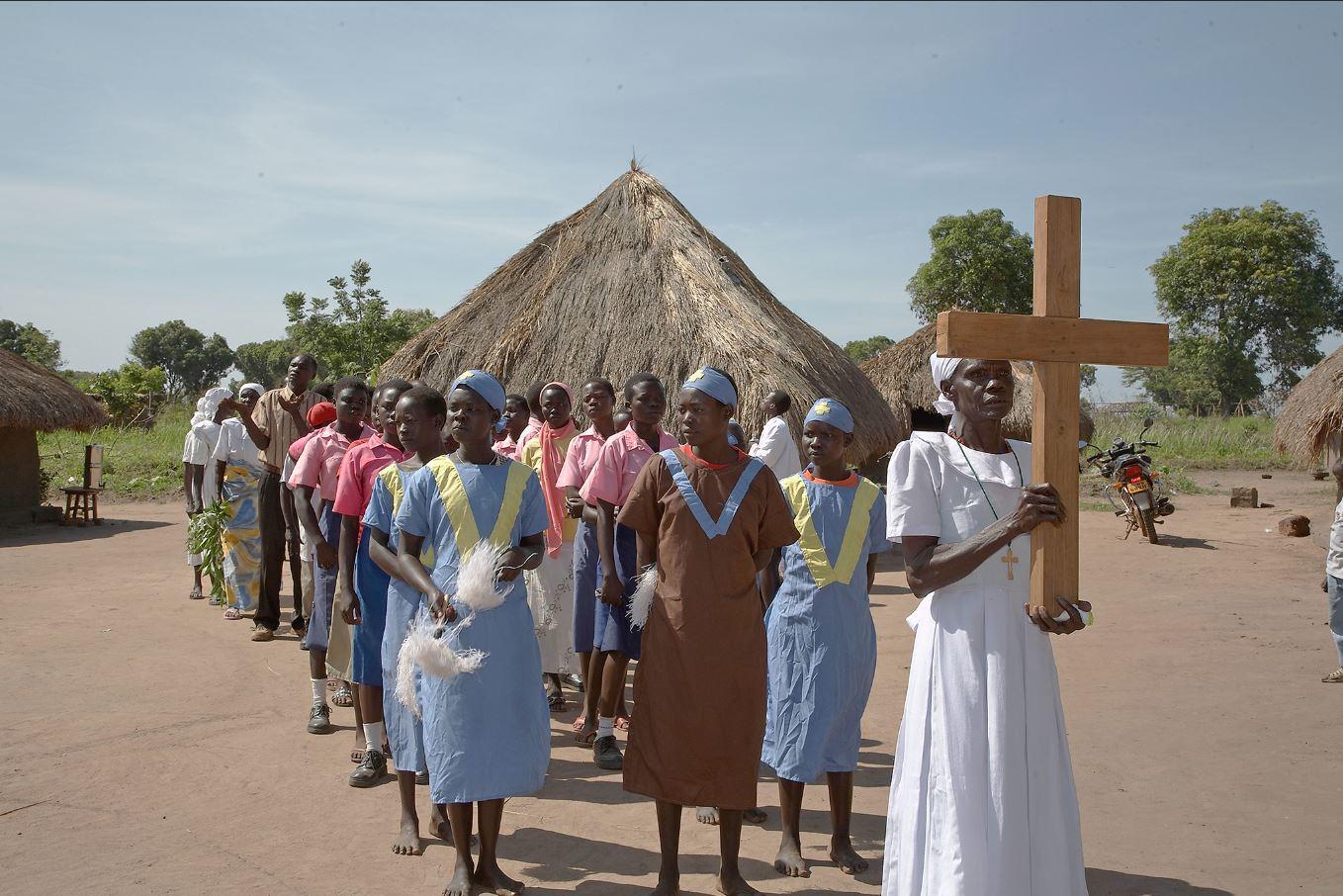The Religious Landscape in South Sudan: Challenges and Opportunities for Engagement
Since the beginning of South Sudan's civil war in 2013, the country's religious actors have sought to play an active role in turning the tide from war and violence to peace and reconciliation. Drawing on interviews, focus groups, and consultations, this report maps the religious landscape of South Sudan and showcases the legitimate and influential religious actors and institutions, highlights challenges impeding their peace work, and provides recommendations for policymakers and practitioners to better engage with religious actors for peace.

Summary
This study, conducted in South Sudan in 2017 and 2018, draws on informant interviews, focus groups, and consultations to better understand and map the religious sector in South Sudan. Its primary finding is that religious actors and institutions are the most important peace actors in the country. However, due in part to efforts by the government to constrain their influence, religious actors are not using their legitimacy effectively to turn the tide from war and violence to peace and reconciliation.
Religious actors, unlike in previous negotiations, were asked to moderate discussions at the May 2018 peace talks in Addis Ababa, Ethiopia. Even though the most challenging issues were not resolved, the shift in status raises the possibility of new roles for religious actors in future peace processes.
Sources of legitimacy for religious actors include their willingness to conduct risky mediation efforts, travel to areas experiencing violence, and speak truth to power. Their acts or statements, though, risk being labeled political. Comments about atrocities by soldiers or visits to marginalized communities, sometimes in rebel-held territory, further close the space for religious peace work when deemed to be political acts. Meanwhile, threats facing religious actors in South Sudan have worsened since 2013, and range from restricted movement and resource shortages to detentions, torture, and killings.
Opportunities exist to improve engagement between international peace actors and religious actors, to expand peace roles for religious women, youth, and prophets, and to increase the impact of religious peace efforts. Religious actors have also indicated interest in learning about nonviolent action and other such opportunities, but do not well understand concepts of strategic nonviolent action.
About the Report
This report showcases religious actors and institutions in South Sudan, highlights challenges impeding their peace work, and provides recommendations for policymakers and practitioners to better engage with religious actors for peace in South Sudan. The report was sponsored by the Religion and Inclusive Societies program at USIP.
About the Author
Jacqueline Wilson has worked on Sudan and South Sudan since 2002, as a military reservist supporting the Comprehensive Peace Agreement process, as a peacebuilding trainer and practitioner for the US Institute of Peace from 2004 to 2015, and as a Georgetown University scholar. She thanks USIP’s Africa and Religion and Inclusive Societies teams, Matthew Pritchard, Palwasha Kakar, and Ann Wainscott for their support on this project.




